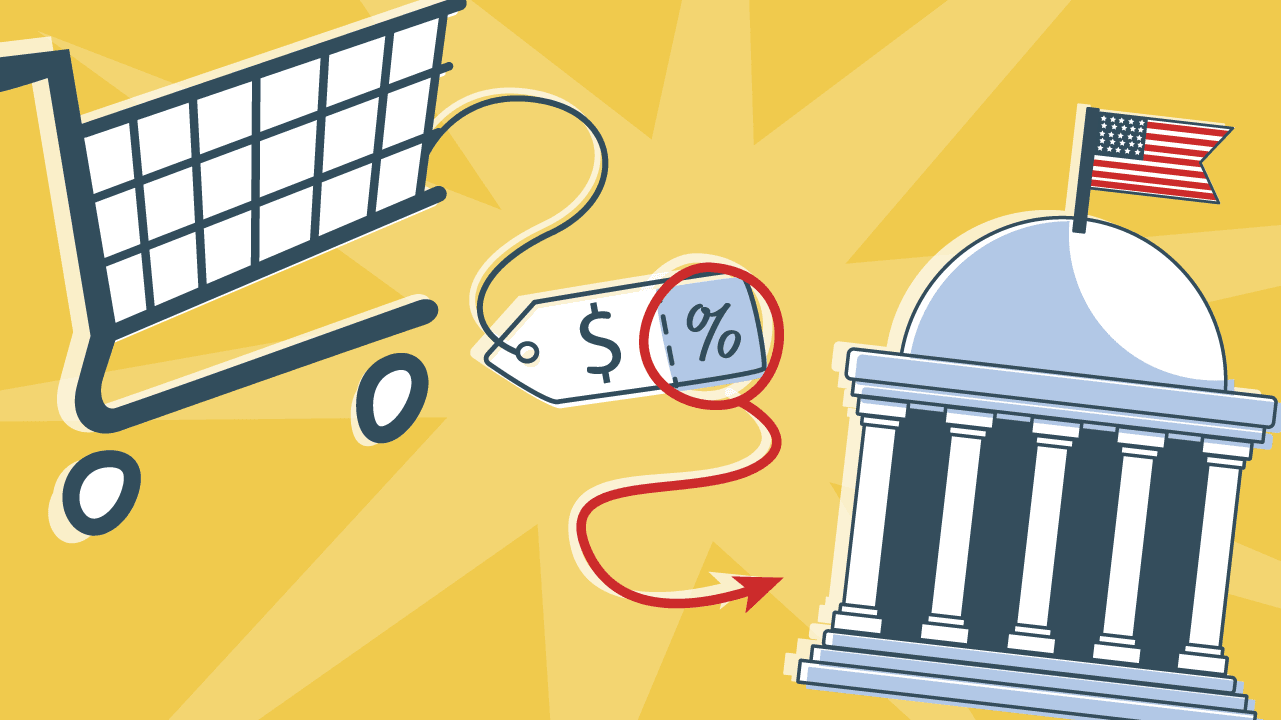You're here:
What are notice and report laws in the US?

Notice & report laws in the US are specific tax rules for remote sellers, or any out-of-state businesses that have customers inside the state. These rules are designed to rope e-commerce, SaaS, and other digital businesses into sales tax obligations.
These rules also apply to marketplace facilitators and providers!
Although only 11 states have notice and report laws in place, you need to understand your business’ responsibility so that you can avoid issues with the local tax authorities.
In this post we’ll cover how the laws work, where they apply, and what you should do to comply wherever you’re selling.
What are notice and report laws?
These rules are part of use tax. In the US, use tax accompanies sales tax in some states. Here’s how it works:
When a customer buys something from a seller outside the state, or any business that is not registered for local sales tax, then no sales tax is collected on the purchase. The state still wants that revenue, though, so they require the customer to pay “use tax” even after the purchase.
Essentially, non-collecting sellers play a role in enforcing use tax. Some businesses who are not registered for sales tax because they don’t have nexus in a state (more on that in the next section) must actively track and report on their customers’ purchases. They must also contact their customers and tell them to pay use tax!
To comply with notice and report laws, remote sellers must do these three things:
1. Notify customers of their obligations to report and pay use tax, since sales/use tax was not collected at the point of purchase.
2. Send a purchase summary to each customer every year.
3. Send a report to the state tax authority every year, detailing the purchasing information of each customer.
As you can see, businesses must send a notice and a report. Hence the name. :)
How do they relate to nexus?
Notice & report laws apply to businesses or marketplaces that are not obligated to register for sales tax in a particular state because they do not have nexus there. For a refresher on what constitutes a “nexus” and how each one is defined, check out our guide to US sales tax nexus.
That said, notice & report laws are actually very similar to economic nexus rules in that they measure a business’ activity against a specific tax threshold.
These require all sellers who hit either a revenue amount (such as $100,000 per year) or transaction count (such as 200 transactions) to comply with the state’s sales tax law. The threshold numbers vary by state.
Once you reach one of these thresholds, you have two choices:
- Register and comply with sales tax like any other business.
- Comply with notice and reporting requirements.
Which states have notice and report laws?
The following states (and one territory) currently have these rules in place. Remember that thresholds and other specifics could vary from place to place, and it’s best to check with each local tax authority.
- Alabama
- Colorado
- Connecticut
- Hawaii
- Louisiana
- Oklahoma
- Pennsylvania
- Puerto Rico
- Rhode Island
- South Dakota
- Vermont
In these states, the rules apply to all kinds of remote sellers: businesses selling physical products, dropshippers, companies selling SaaS in the US, and other e-commerce.
How to comply
Well, it’s tedious! Complying with these rules generally requires setting up a few processes in your business operations. It also requires tracking various rates and thresholds, plus documenting specific details of each sale.
1) Know the notice & report thresholds in each state and measure your sales there, so you know when you might become liable for the use tax reporting.
2) Once liable, keep records of all customer information, purchases, and the sales/use tax that would (or should) apply to the sale. This requires you to know the local tax rates in the state as well!
3) With each purchase, you must notify the buyer of their obligation to pay the appropriate amount of use tax to their own tax authority.
4) Every year, you must send each customer a summary of their purchases with your business.
5) Every year, you must send each tax authority a collective summary of your customers’ purchasing information and the tax they should be paying.
What could you do instead?
There’s always the option to register for sales tax in the state and follow those rules of collecting and remitting tax yourself. This route can also be tedious, but it’s less of a burden on your customers — and it’s better for customer data privacy, as you don’t have to share personal information about your customers with the authorities.
The best way to stay on top of the US sales tax system is to use a cloud-based accounting tool that automates the entire process, from charging the correct tax rate to collecting payment to issuing the proper receipt. All of your records are kept safely online for you, even if your computer crashes. Quaderno helps manage sales tax compliance, so that you can spend your time focusing on dominating the market, bettering your product, getting to know your customers, taking care of your employees, or whatever else matters more than fretting over tax technicalities.
Sign up for a free trial and see how Quaderno can give hours back to your week.
Note: At Quaderno we love providing helpful information and best practices about taxes, but we are not certified tax advisors. For further help, or if you are ever in doubt, please consult a professional tax advisor or the tax authorities.
